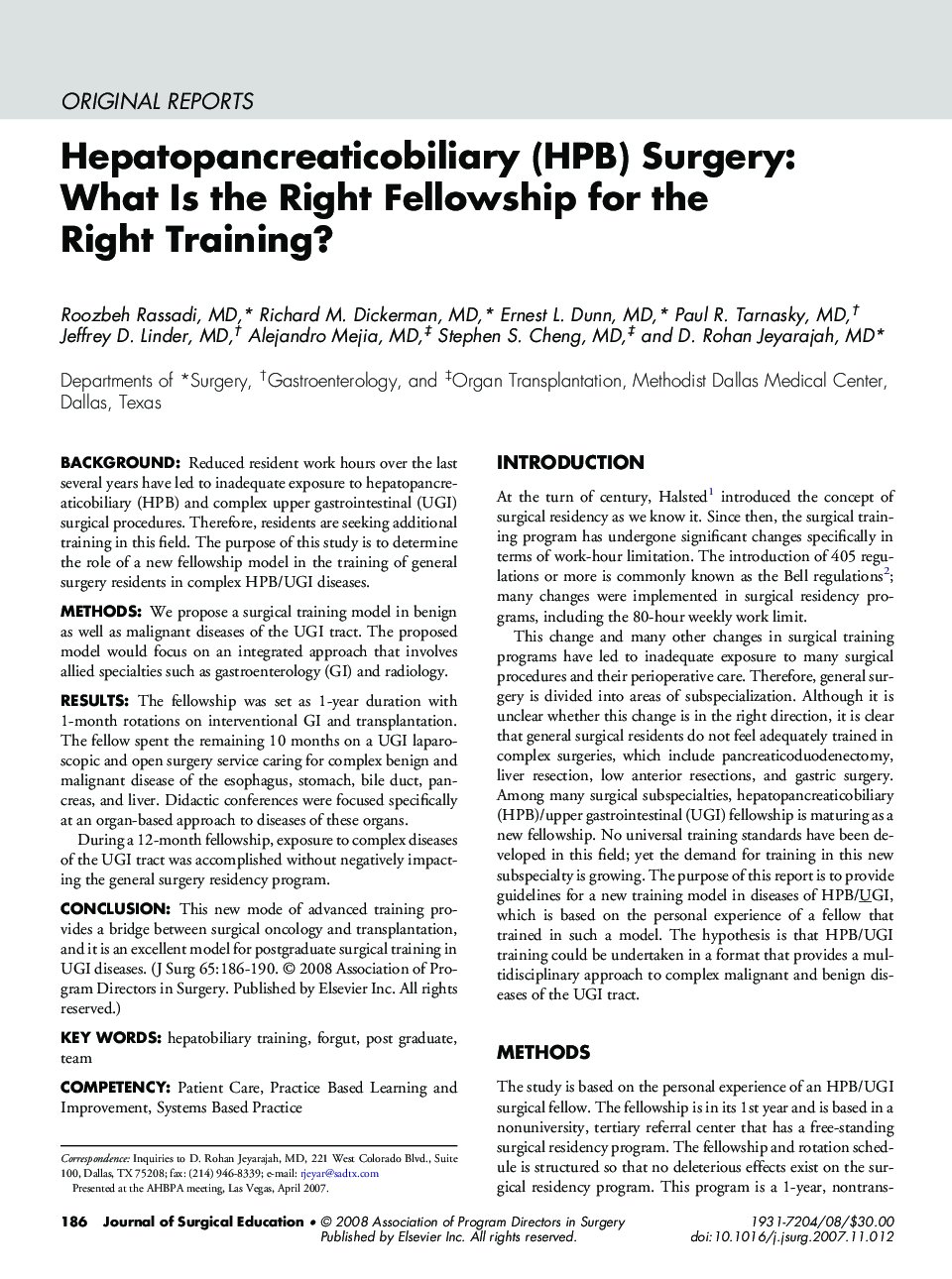| Article ID | Journal | Published Year | Pages | File Type |
|---|---|---|---|---|
| 4298929 | Journal of Surgical Education | 2008 | 5 Pages |
BackgroundReduced resident work hours over the last several years have led to inadequate exposure to hepatopancreaticobiliary (HPB) and complex upper gastrointestinal (UGI) surgical procedures. Therefore, residents are seeking additional training in this field. The purpose of this study is to determine the role of a new fellowship model in the training of general surgery residents in complex HPB/UGI diseases.MethodsWe propose a surgical training model in benign as well as malignant diseases of the UGI tract. The proposed model would focus on an integrated approach that involves allied specialties such as gastroenterology (GI) and radiology.ResultsThe fellowship was set as 1-year duration with 1-month rotations on interventional GI and transplantation. The fellow spent the remaining 10 months on a UGI laparoscopic and open surgery service caring for complex benign and malignant disease of the esophagus, stomach, bile duct, pancreas, and liver. Didactic conferences were focused specifically at an organ-based approach to diseases of these organs.During a 12-month fellowship, exposure to complex diseases of the UGI tract was accomplished without negatively impacting the general surgery residency program.ConclusionThis new mode of advanced training provides a bridge between surgical oncology and transplantation, and it is an excellent model for postgraduate surgical training in UGI diseases.
